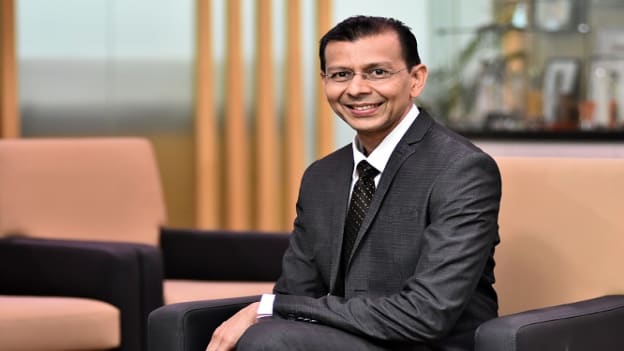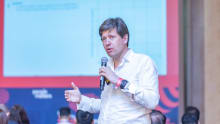Enabling HR professionals in Singapore, the IHRP way

TechHR Singapore 2019 Read similar articles

“As Singapore doesn’t have natural resources, our success is driven primarily by human capital. Every worker in Singapore is touched by HR,” says Mayank Parekh, CEO of the Institute for Human Resource Professionals (IHRP). Which is why Mayank thinks that IHRP has a strategic and key role in upgrading, uplifting, human capital practices in Singapore.
The HR professional body is set up by the tripartite partners- the Ministry of Manpower (MOM), the National Trades Union Congress (NTUC) and Singapore National Employers Federation (SNEF). IHRP is the only HR professional body in Singapore authorized to implement the national HR credentials, which is known as the IHRP Certification. IHRP has the goal of setting the HR standards of excellence and enabling human capital development in enterprises.
In an exclusive interaction with People Matters, Mayank shares how IHRP aims to strengthen the HR profession in Singapore and enable HR professionals to be key enablers in their organizations.
What was the mandate of IHRP and some of the milestones that you have achieved?
As an HR professional body, IHRP’s challenge is to define the skills and competency the HR professionals need to have not just today but also for the future. Also, these competencies and standards needed to be defined across the spectrum of HR practice and for different organizations ranging from public to private and large to small.
To do this IHRP took a holistic approach in defining those standards. It not only got feedback from the senior HR professionals but also involved its tripartite partners- the government, the unions, and the employers-to know what they would like to see in the HR community that could help them in their challenges.
The process took a significant amount of time-almost two years and involved over 500 senior leaders doing interviews and focused groups in order to come up with what IHRP calls “body of competency (BOC).” A unique feature of IHRP’s BOC is that it sets the standards not just in terms of actual processes and practices but also the mindsets and behaviors that are expected at various levels of certification
What is the objective for the other two parties to focus on developing the HR community?
For the tripartite partners, HR is not a function but a multiplier. HR in Singapore is very much partnering with the businesses as well as the unions to bring about transformation and change. And hence all stakeholders need to come together in order for HR to succeed as well.
The employers see HR as a strategic partner. A better equipped and more competent HR is crucial for them. For the unions, it is all about how HR partners in the effort to ensure that our workers are prepared for the future of work, to adapt and grow for employability.
The current challenges of disruption, uncertainty, and changing business models is also an opportunity for HR to step up and to help their business partners with unique solutions that are centered on people and organizational development.
How is the body of competency structured at IHRP and how does it link into IHRP’s certification?
The IHRP’s body of competency is based around three areas - at the core, it has a set of foundational competencies. These are competencies that span across the spectrum of HR roles and HR specializations. No matter what you do in HR, competencies-such as analytics, the ability to understand and leverage technology in HR operations, the need to know about regulations, and finally developing relationships and communications skills.
Around these core competencies are the functional competencies that follow the life cycle of the employee from talent attraction, to engagement and development, and finally to the separation process which is also important to get right.
Lastly, wrapped around these are the mindsets and the behaviors. Does HR have a future orientation? Is HR business and outcomes-driven? Is HR leading the change and transformation in organizations? Finally, does HR uphold ethical behavior and a code of professional practice?
IHRP aims to enhance the competencies of HR professionals, through continuing professional development (CPD), as well as open opportunities for experiential developmental and professional pathways for them. Therefore, it has mandated 90 hours of CPD as a requirement for re-certification over a three-year time frame.
What has been the journey so far and some of the big achievements so far? What is exciting you for the future?
One of the big achievements for IHRP in this journey has been the setting up of a national certification framework. That is something HR professionals in Singapore look forward to. Today the IHRP has built a community close to a 1,000 HR professionals.
With its rigorous assessment standards, we see the certification over time becoming a rite of passage for all HR professionals. They will see certification as part and parcel of their career journey.
The certification is not just validation for yourself but also a good signal to your employers that you have the mindset for development. It will also open doors to HR professionals who may not have opportunities within their companies for certain experiences. Being a part of a certified community helps you get on a learning journey and a lot of opportunities open up to try new things.
Where do you see the opportunity of bringing in more partners in building the HR community and making it bigger?
We are very much part of an ecosystem which consists of government agencies, employer organizations including chambers of commerce, the unions, the training providers, HR tech companies, and the employees. There’s a lot of good work happening in these organizations to advance HR practices. Through our efforts, we hope to bring all the key stakeholders of the HR ecosystem together and synergize efforts.
We see IHRP as providing the standards and platform for all stakeholders to come together and build a consensus around a common purpose. In the end, we hope our efforts will signal the way forward for a transformed and progressive HR community in Singapore.
Want to know more about the Human Resource community in Singapore? Register here for TechHR Singapore on 28th February, 2019 at Marina Bay Sands, Singapore which will bring together thought leaders, HR & Business Leaders, and practitioners in the APAC region.







